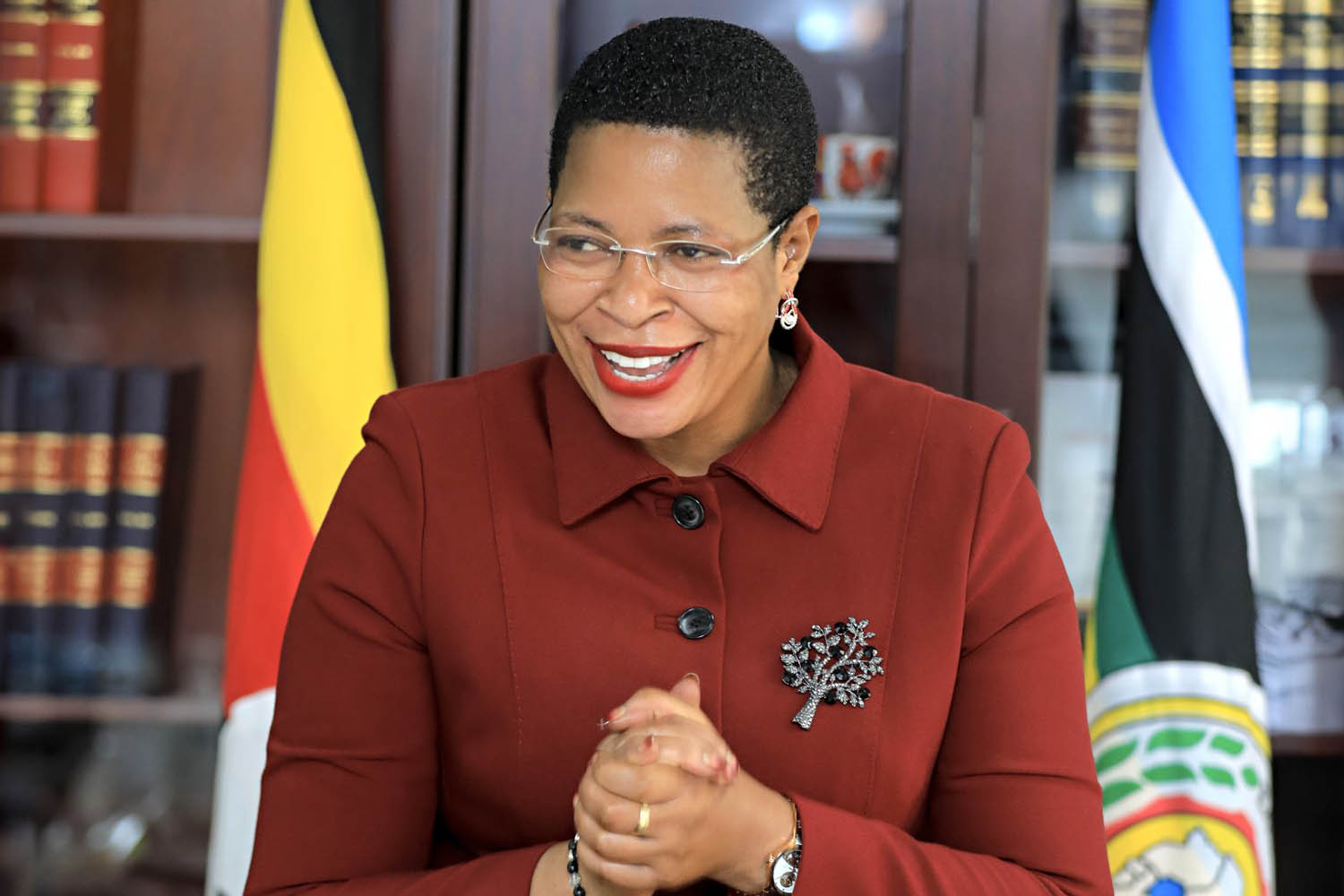
The UK is preparing to welcome a hardline opponent of gay rights as Uganda’s representative at the Commonwealth’s 75th anniversary celebrations.
Anita Annet Among, the Ugandan Parliament Speaker and vocal supporter of the country’s anti-homosexuality law, has been invited to celebrate the anniversary in London next month along with other Commonwealth nations’ Speakers.
The Anti-Homosexuality Act (AHA), signed into law by Ugandan President Yoweri Museveni in May 2023, imposes life imprisonment on anyone convicted of homosexual acts; criminalises the “promotion of homosexuality”; and includes the death penalty in some cases.
When the anti-LGBT+ bill was signed, Among said Uganda had “a culture to protect” and that “the Western world will not come to rule Uganda”.
Among has publicly said she will use the Commonwealth celebrations as an opportunity to defend the law. Human rights campaigners have pleaded with the UK’s Speaker of the House of Commons, Sir Lindsay Hoyle, to intervene to urge the government to block Among’s visa so she is no longer able to attend the celebrations.
British LGBT+ campaigner Peter Tatchell, acting at the request of Ugandan LGBT+ and human rights campaigners, told Sir Lindsay in a meeting last week that Among should be disinvited, highlighting her role in the legislation.
A spokesperson for the Speaker told Tortoise Sir Lindsay had “agreed to put forward concerns raised by Ugandan human rights activists” to the Home Secretary, James Cleverly, and that a meeting with Cleverly was planned.
When asked if Among’s UK visa would be blocked, a Home Office spokesperson said: “It is longstanding government policy that we do not routinely comment on individual cases.”
Tatchell told Tortoise: “Anita Among’s bid to enter the UK is not a routine matter [since] she is a high-profile public figure who supports the execution of LGBT+ people.
“Her views violate the British values of respect, tolerance and human rights. Visas are routinely refused for people with such extreme views. The Home Office should come clean about whether she will be subject to an exclusion order. The LGBT+ community and the wider public have a right to know.”
According to an architect of the Anti-Homosexuality Act, Asuman Basalirwa, Among’s US visa was cancelled days after the bill was signed.
In December 2023, the US restricted the visas of unnamed Ugandan officials who were “responsible for, or complicit in” passing the AHA.
In response, Among said she was “proud and happy with what the president did”. She said she would “continue protecting the family, protecting the rights of our children and our country… my visa was cancelled, have I died?”.
A US State Department Official declined to comment, saying individual cases were confidential.
Steven Kabuye, a Ugandan LGBT+ activist who said his life “isn’t guaranteed” after being stabbed by unknown assailants last month, said the Commonwealth anniversary “can’t be used to promote laws that consist of death penalties and life imprisonment for LGBT+ people”.
“Provided that the UK understands and protects human rights without discrimination. It will undermine the UK’s integrity and stand to protection of human rights,” Kabuye said.
The Strategic Response Team, a coalition of Ugandan LGBT+ rights organisations, reported last year that since the bill was passed LGBT+ people have experienced “intensified violence and discrimination including beatings, sexual and psychological violence, evictions, blackmail, loss of employment and denial of access to healthcare”.
At the time of the Anti Homosexuality Act’s signing the Foreign, Commonwealth & Development Office (FCDO) minister, Andrew Mitchell, said the UK government was “appalled” that Uganda had passed such a “deeply discriminatory” bill.
Most Commonwealth states – 32 of the 56 – still criminalise same-sex acts between consenting adults, with many of these laws introduced during the colonial era. Two other Commonwealth nations, Kenya and Ghana, are set to debate anti-LGBT+ legislation similar to Uganda’s in their current parliamentary sessions.
